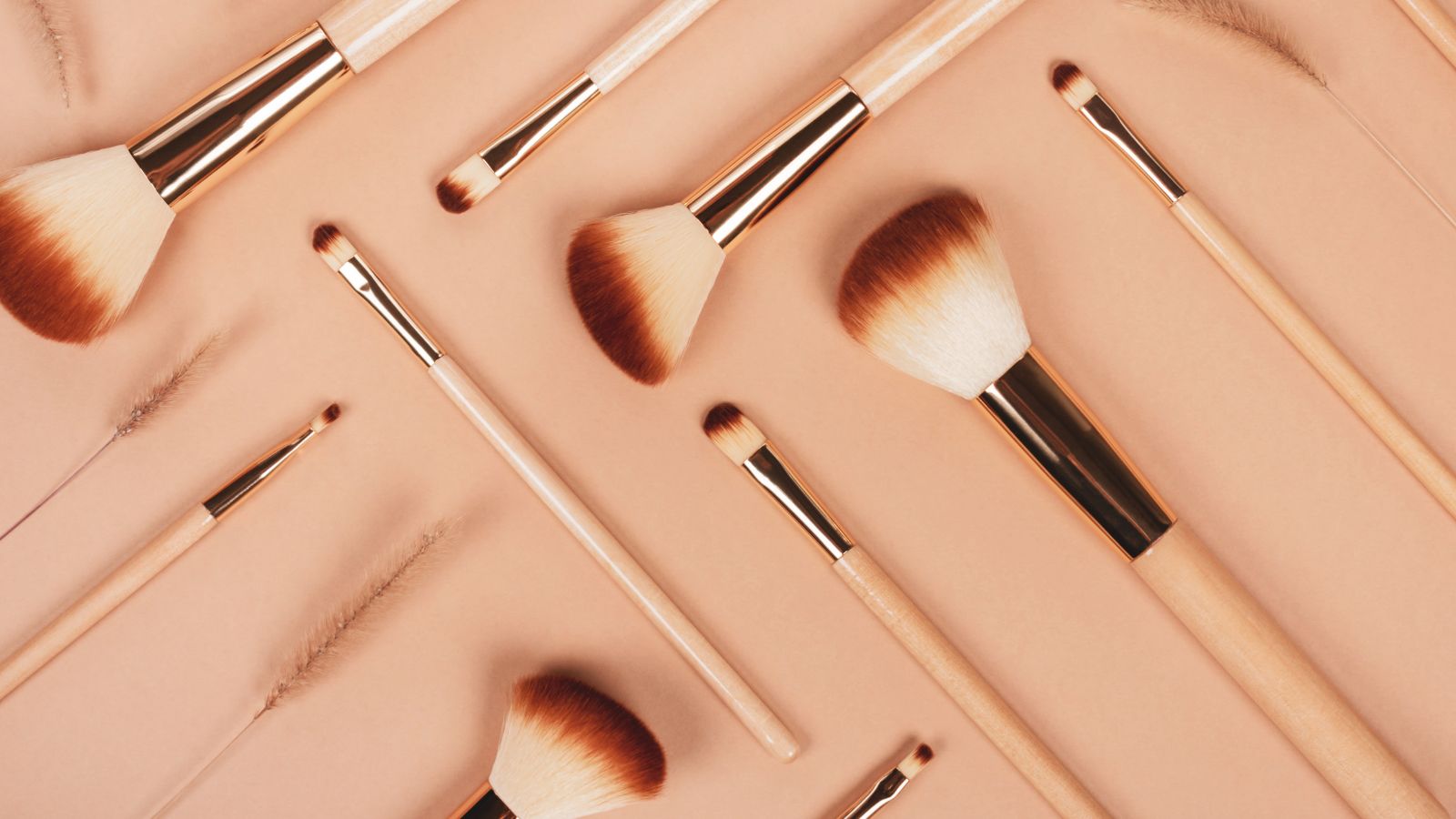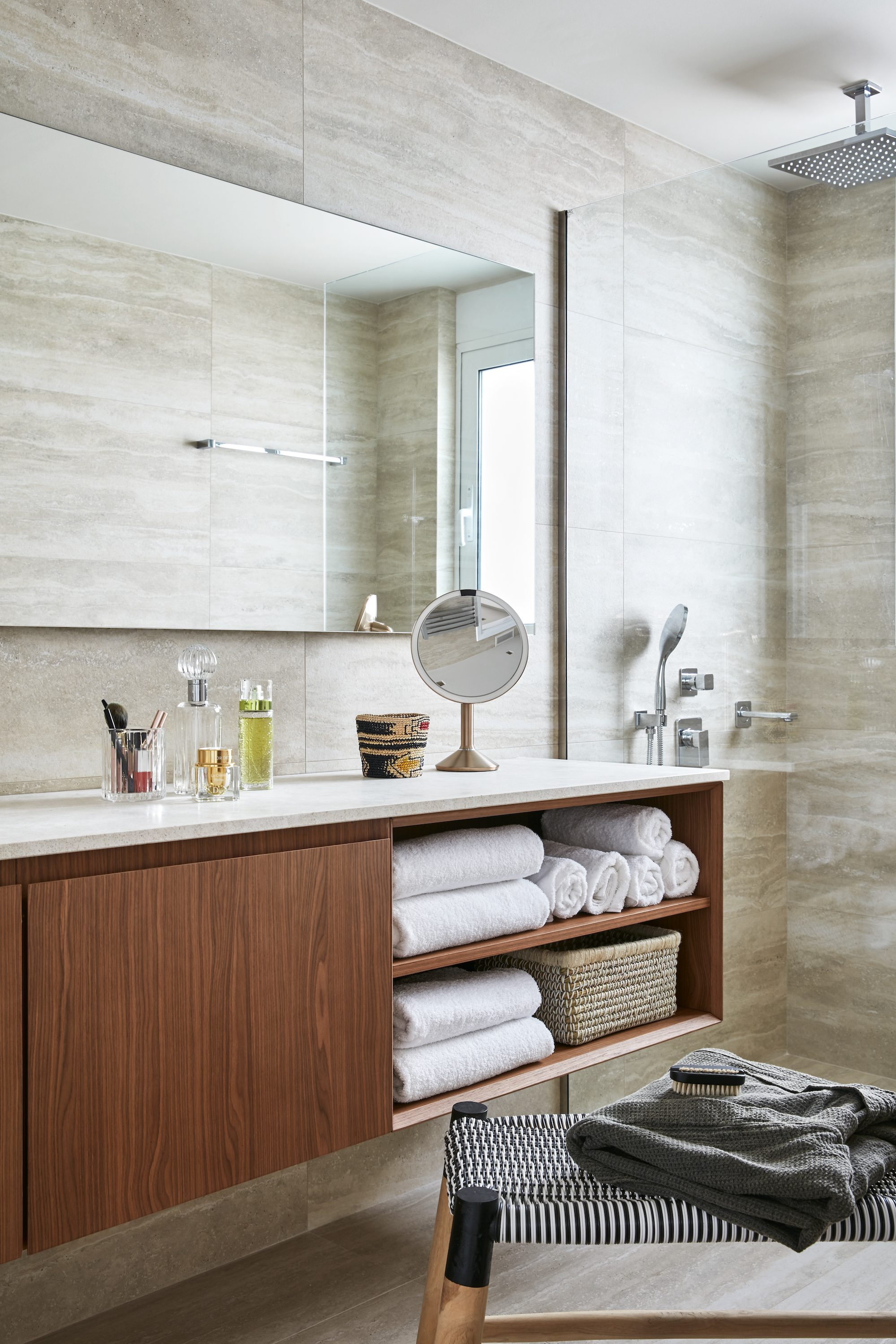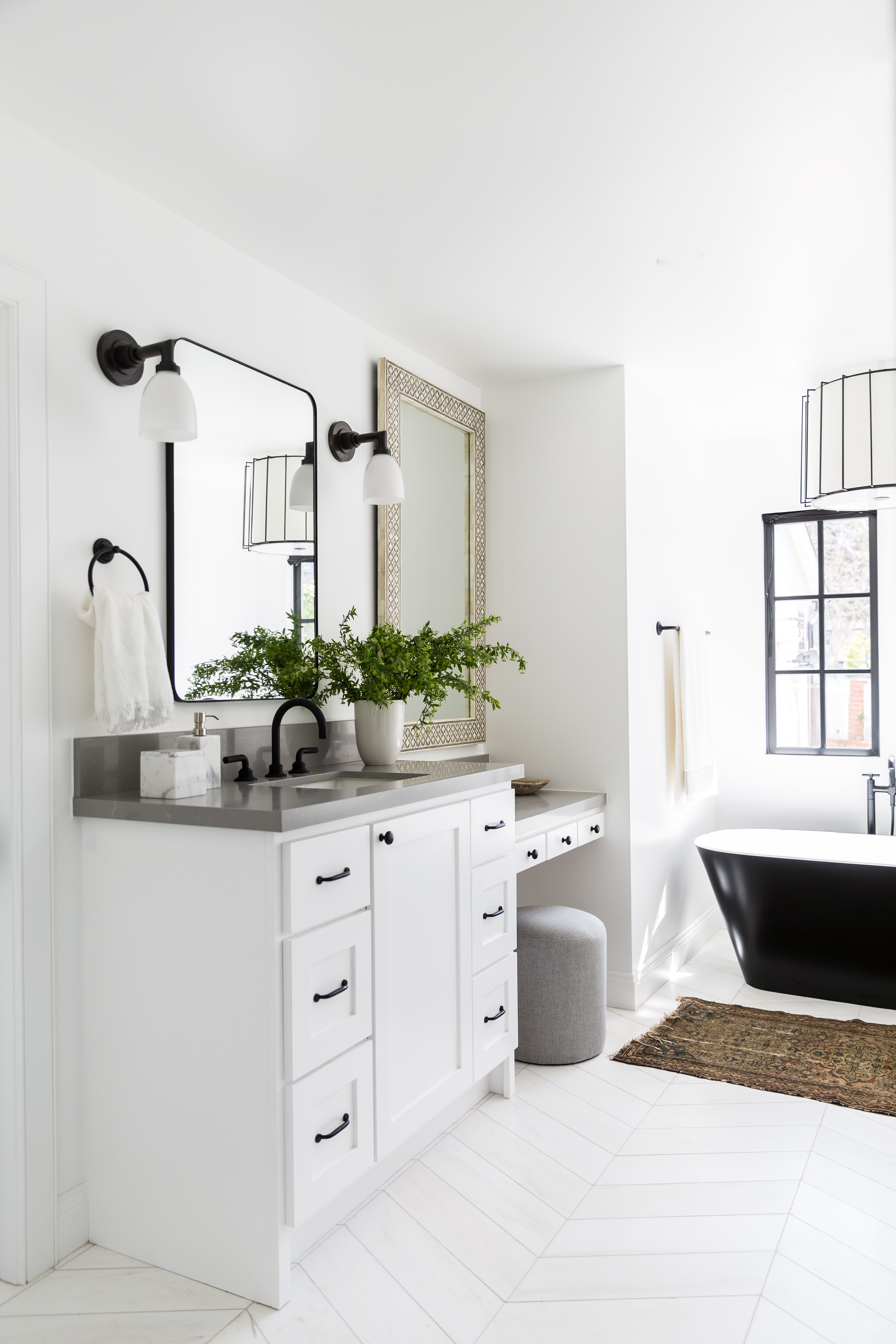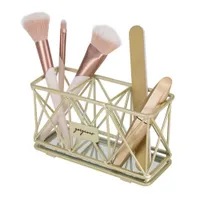This is the best way to clean makeup brushes and sponges, according to pros
How often should you be cleaning your makeup tools? We asked the professionals to weigh in


The secret to flawless makeup application is not just the cosmetics brand you use or the skilled hand that applies it, it’s also about keeping your makeup brushes and sponges clean. Trust us, though this step is often overlooked, it's crucial for keeping your skin clear and healthy.
Think of your makeup brushes and sponges as the foundation of your beauty routine. Just as you wouldn't build a house on shaky ground, you shouldn't apply makeup with tools that could harbor bacteria and residue from previous use. Sanitizing, cleaning, and organizing makeup tools are all essential steps to prevent skin irritation and breakouts.
But how and how often should you clean your makeup brushes and sponges? We asked MAUs and clinicians to share their tips and tricks for keeping beauty tools – and your skin – in pristine condition.
How to clean makeup brushes and sponges
You may have perfected your skincare regime, decluttered your makeup drawer, and organized your dressing table, but have you remembered to sanitize your tools? Let’s look at why this step is so important and the best way to deep clean your sponges and brushes.
How often should you clean brushes and sponges?

‘Regularly cleaning skincare tools is crucial to prevent dust, dirt, and bacteria build-up,’ explains Valerie Aparovich, a biochemist and certified cosmetologist-aesthetician. ‘The makeup tools you use daily are breeding grounds for bacteria, which can lead to unwanted consequences like irritation and inflammation.’
Valerie advises that brushes used for dry, powder-based cosmetics should be cleaned every 1-2 weeks, while those used for liquid products should be cleaned after each use. The same goes for makeup sponges, which ideally should be washed right away or at least every 2-3 uses.

Valerie is a certified cosmetologist and aesthetician, clean beauty advocate, and practicing biochemist in the field of skincare. She specializes in topical cosmetic treatments, helps people build beneficial skincare routines and pick healthy and efficient cosmetic products, and researches cosmetic ingredients’ safety and impact on skin and overall health. Valerie is also Science Team Lead at OnSkin.
How to clean makeup brushes

'Gather your brushes next to the sink, along with a gentle liquid cleanser or soap, and a clean dry towel or paper towel,' begins Cheryl Fork, Founder of clean skincare brand FORK & MELON. Start by cleaning one brush at a time, following these simple steps:
Design expertise in your inbox – from inspiring decorating ideas and beautiful celebrity homes to practical gardening advice and shopping round-ups.
- Squeeze a small amount of soap onto your palm.
- Wet the brush bristles under warm water and swirl the wet brush in the soap on your palm.
- Gently work the cleanser lather through the bristles, massaging to remove makeup and other residue.
- Once done, rinse thoroughly, reshape the brush, and lay FLAT on a clean towel.
- Let them air dry overnight or until the bristles are completely dry and can easily be fluffed.
- Don't be tempted to use your brushes while they are wet, as this can interfere with the formula of your makeup.

Cheryl Fork is the founder of FORK & MELON, a clean line of elevated skin and body care products made with watermelon seed oil. She is also the author of SOAP AS FASHION, an intellectual-style newsletter.
'Never fully submerge your makeup brushes in water,' cautions Megan Steinberg, Master Cosmetologist at Alter'D Salon and Spa. 'If water gets down into the ferrule (the metal part of the brush), it can break down the glue that holds the bristles in the brush, or it can develop mildew, which will cause its own host of problems.'
To avoid getting the ferrule wet when rinsing your tools, keep the bristles horizontal or pointed downward towards the drain.
'Those devices that spin brushes are actually awful for your brushes, too,' Megan adds, 'because they can flush the brush full of water and disrupt its integrity.' Instead, she recommends massaging any product out of your brushes using a textured silicone mat, like these portable cosmetic washing pads from Walmart. As long as they are disinfected between uses, these tools are ideal for keeping handy by your sink or on your makeup vanity.
In between brush baths, Megan also recommends using an antibacterial brush spray or liquid brush cleaner to keep your tools in pristine condition.

Megan Steinberg is a Master Cosmetologist at Alter'D Salon and Spa and a professional makeup artist based in Georgia.
How to clean makeup sponges

Makeup sponges require extra care. Professional makeup artist Azesha Ramcharan suggests cleaning these tools with a specialist brush and sponge detergent, such as Norate Brush Cleaner from Amazon.
'Add a small amount of the cleaner to warm water and soak the sponge. After a few minutes, agitate and squeeze the sponge to dislodge makeup,' she explains. 'To sanitize sponges, boil them in water for a few minutes. Alternatively, place them in a zippered lingerie bag and run them through the sanitize cycle in the laundry.'
Both of these methods will work far more effectively than the viral microwave makeup sponge cleaning hack, which is inefficient and potentially dangerous, without offering any significant cleaning results.

Azesha Ramcharan is a Certified Professional Makeup Artist based in NY's Hudson Valley region. Clients have included NBC, The Juilliard School, Hessel Museum of Art, Craftsy and VOZ. In addition to working with fashion, beauty and lifestyle brands she also works with everyday women for weddings and events. She is known for a clean makeup style which highlights the unique beauty inherent in every face.
Metal Makeup Organizer
$20.53 from Wayfair
Keep your brushes and cosmetics sitting pretty in this neat metal organizer – it's perfect for storing your makeup tools in style.
Always store your makeup brushes and sponges in a clean, dry place to prepare them for your next makeup session. This simple habit can significantly extend the life of your tools and protect your skin from unwanted reactions.

Gabriella is a freelance contributor for Homes & Gardens. She is a DIY enthusiast and a lover of all things interior design, often found antiquing or browsing the aisles of her local hardware store. She has a particular passion for historic buildings and is in the process of renovating a Victorian coachhouse in the countryside.
For much of the past decade, Gabriella has worked as a freelance writer, crafting copy for national publications and renowned homeware brands. Most recently, she worked for Homebuilding & Renovating Magazine and is the former Head of Solved at Homes & Gardens, focusing on case studies for the magazine and website, as well as writing features about issues surrounding historic and listed building projects.
